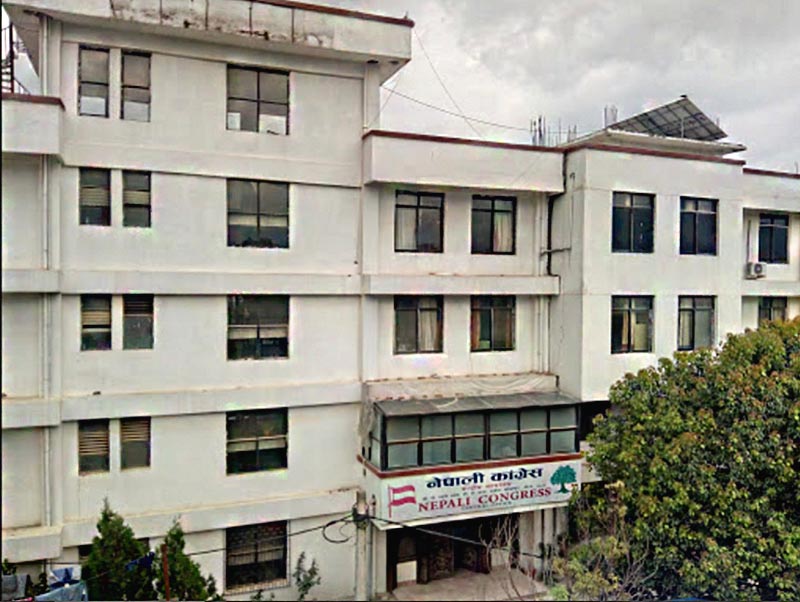Congress’ internal woes far from over
Kathmandu, March 20
Formation of the Nepali Congress’ disciplinary, election and regulation drafting committees yesterday ended a month-long deadlock, but the party’s internal woes as a result of factionalism are far from over.
The deadlock had ensued after the central working committee on February 24 endorsed the party’s statute on the basis of majority against the mandate of a meeting of the Maha Samiti, the party’s lawmaking body.
Rival factions led by NC senior leader Ramchandra Paudel and Krishna Prasad Sitaula then announced boycott of the party’s CWC meeting in a protest against NC President Sher Bahadur Deuba’s ‘unilateral style of functioning’. The CWC then could not meet for almost a month. Deuba had planned to form the disciplinary committee in the CWC meeting.
The deadlock was finally broken after Deuba invited incumbent and former office bearers at his residence for talks on March 17. Subsequently, the disciplinary committee led by Bhisma Raj Angdambe was formed unanimously the following day.
However, NC leaders say the unanimous decision was taken not because of the leadership’s realisation that internal disputes in the party were making it weaker, but because the factions did not see any threat from the disciplinary committee.
The committee was formed after the CWC decided that the committee could not take any decision on the basis of majority, but unanimously. Rival factions had feared ‘actions guided by factional interests’ against them by the disciplinary committee on the basis of majority. This also means that the committee has been formed just for the sake of forming it, said NC CWC member Pradip Paudel. “Do you think the disciplinary committee represented by three factions will take unanimous decisions?” he asked.
There are many pending issues such as endorsement of statute against the Maha Samiti mandate, Nepal Students Union election, uncertainty about the party’s general convention, non-formation of the party’s departments and restructuring of the party’s organisation in line with the country’s federal set-up, among others.
“All the problems are as they are. The only thing is formation of the committees has avoided a disaster,” said NC CWC member Gagan Kumar Thapa. “It would have been worse, to the extent of a split, had the leadership not agreed to end the deadlock.” Thapa said things could be better only if the leadership continued this momentum of talks.
NC Spokesperson Bishwa Prakash Sharma said disputes over Maha Samiti mandate and committee formation were neither first nor last, but added that it would promote decision-making on the basis of consensus.
NC insiders say the party has not been able to play the role of an effective opposition, both in the Parliament and outside, as a result of internal disputes. “The Oli administration has given ample issues, from corruption to poor law and order situation, to take up. But the NC is preoccupied with internal factional politics.”






